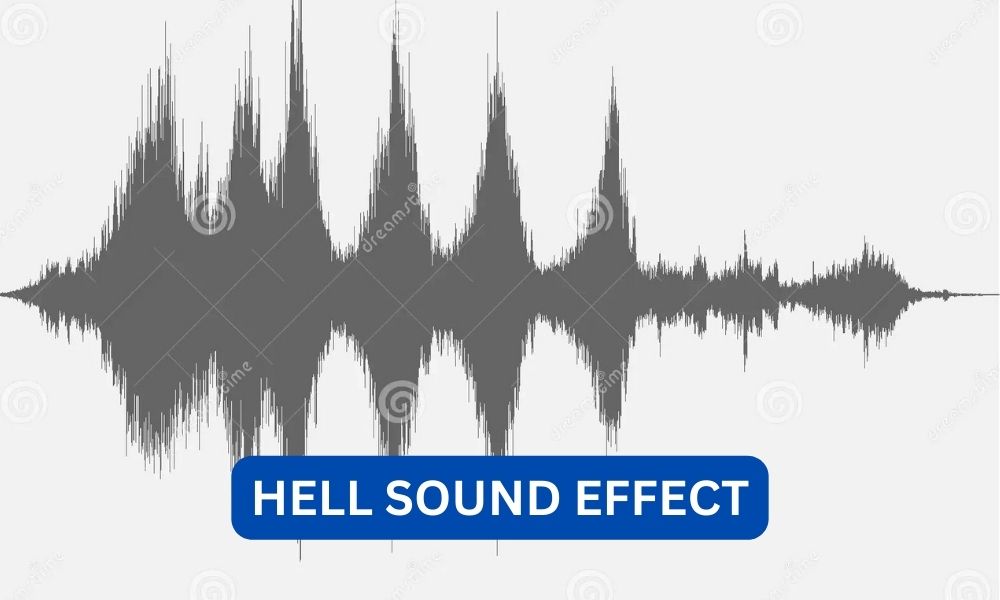Sound effects play a crucial role in enhancing the audiovisual experience of various forms of media, from movies and television shows to video games and online content. One sound effect that has gained significant popularity and recognition is the “What the Hell” sound effect. This article aims to delve into the origins of this sound effect, its impact on popular culture, and its significance in different media platforms.
Contents
The Origins of the “What the Hell” Sound Effect
The “What the Hell” sound effect, often represented by a comical or exaggerated vocalization, has its roots in the early days of radio and television. It emerged as a way to convey surprise, confusion, or disbelief in a humorous manner. The sound effect gained traction in comedy sketches and sitcoms, where it became a staple for comedic timing and punchlines.
One of the earliest instances of the “What the Hell” sound effect can be traced back to the radio show “The Jack Benny Program” in the 1940s. The show featured a recurring character named Rochester, played by Eddie Anderson, who often used the phrase “What the hell!” in response to Jack Benny’s antics. This catchphrase, accompanied by a distinct sound effect, became a fan favorite and set the stage for the sound effect’s future popularity.
Read:What a long sweet trip it’s been dragonflight?The Impact on Popular Culture
Over the years, the “What the Hell” sound effect has transcended its origins and made its way into various forms of media, leaving an indelible mark on popular culture. Its versatility and comedic appeal have made it a go-to choice for content creators looking to add a touch of humor or surprise to their work.
Television shows and movies have embraced the “What the Hell” sound effect as a comedic device. It is often used to punctuate moments of absurdity, confusion, or unexpected events. For example, in the popular animated series “The Simpsons,” the character Homer Simpson frequently exclaims “D’oh! What the hell?” when faced with bizarre situations. This catchphrase, accompanied by the sound effect, has become iconic and synonymous with the show.
Video games have also incorporated the “What the Hell” sound effect to enhance the player’s experience. In the critically acclaimed game “Portal,” the character GLaDOS uses the phrase “What the hell was that?” when the player solves a puzzle or completes a challenging task. This adds an element of surprise and humor to the game, creating a memorable and enjoyable gameplay experience.
The Significance in Different Media Platforms
The “What the Hell” sound effect holds significance in different media platforms, each utilizing it in unique ways to engage their respective audiences.
Read:What Does Happy Harvest Mean?Comedy Sketches and Sitcoms
In comedy sketches and sitcoms, the “What the Hell” sound effect serves as a comedic tool to elicit laughter from the audience. It is often used as a punchline or a reaction to absurd situations, highlighting the comedic timing and delivery of the actors. The sound effect adds an extra layer of humor and surprise, enhancing the overall comedic impact of the scene.
Animated Shows and Movies
Animated shows and movies frequently employ the “What the Hell” sound effect to amplify comedic moments and add a touch of irreverence. The exaggerated vocalization, combined with the sound effect, creates a humorous contrast to the animated visuals, resulting in a more engaging and entertaining experience for viewers of all ages.
Video Games
In video games, the “What the Hell” sound effect serves multiple purposes. It can be used to indicate surprise or confusion when the player encounters unexpected events or challenges. Additionally, it can provide comedic relief during intense gameplay moments, offering a brief respite from the action. The sound effect adds an interactive and immersive element to the gaming experience, enhancing the player’s emotional connection to the game world.
Read:What watt bulb for leopard gecko 20 gallon tank?Examples of Memorable “What the Hell” Sound Effects
Several notable examples of the “What the Hell” sound effect have left a lasting impression on audiences:
- In the movie “Home Alone,” the character Kevin McCallister exclaims “What the hell?” when he discovers the burglars attempting to break into his house.
- In the TV show “Friends,” the character Joey Tribbiani often uses the phrase “What the hell?” in response to his friends’ antics, accompanied by the sound effect.
- In the video game “Grand Theft Auto V,” the character Trevor Philips frequently utters “What the fuck?” in moments of surprise or disbelief, creating a memorable and immersive experience for players.
The Evolution and Adaptation of the “What the Hell” Sound Effect
As media platforms continue to evolve, so does the “What the Hell” sound effect. Content creators are constantly finding new ways to incorporate it into their work, adapting it to suit the changing tastes and preferences of audiences.
With the rise of social media and online content, the “What the Hell” sound effect has found a new home in viral videos, memes, and online skits. Its short and punchy nature makes it ideal for capturing attention and generating laughs in a fast-paced digital landscape.
Furthermore, advancements in sound design technology have allowed for more nuanced and creative use of the “What the Hell” sound effect. It can now be modified, distorted, or combined with other sound effects to create unique variations that cater to specific genres or moods.
Summary:
The “What the Hell” sound effect has become a beloved and recognizable element of popular culture. Its origins in radio and television paved the way for its widespread adoption in various media platforms, including comedy sketches, sitcoms, animated shows, movies, and video games. The sound effect serves as a comedic tool, adding humor, surprise, and engagement to the audience’s audiovisual experience. As media platforms continue to evolve, the “What the Hell” sound effect adapts and finds new ways to entertain and captivate audiences, solidifying its place in the ever-changing landscape of popular culture.









